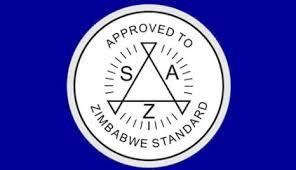News / National
Zimbabweans mistrust SAZ report on contaminated grain
17 Oct 2024 at 08:01hrs |
0 Views

Consumers have expressed significant skepticism over a report by the Standard Association of Zimbabwe (SAZ) that cleared certain grain products of containing glyphosate, a controversial herbicide, claiming the testing process lacked consumer involvement.
The Grain Millers Association of Zimbabwe (GMAZ) recently faced criticism for allegedly selling contaminated products after claims surfaced regarding high levels of glyphosate in their mealie meal. In response, GMAZ commissioned SAZ to test various grain products. The results indicated that glyphosate levels in six analyzed mealie meal samples were below 0.5 parts per million, which SAZ stated is the detection limit for their testing method. This finding was shared during a joint press conference held in Harare.
Glyphosate is known for its application in agriculture to eliminate weeds but has been linked to cancer risks in humans. The presence of glyphosate in food products has raised alarms among health advocates and consumers alike.
Abigale Mupambi, a human rights defender, criticized the process, emphasizing the absence of consumer representation in the testing and evaluation. "They did it probably without the biggest constituents, which are the consumers. At this juncture, we would have expected the Consumer Council and consumers to be on board so that this issue is resolved once and for all," she remarked.
The concerns of consumers are palpable, with many expressing outrage over the SAZ findings. Some assert that even minimal glyphosate exposure poses unacceptable cancer risks. Kudzai Chasi, a concerned consumer, stated, "We cannot trust the food we eat anymore. Glyphosate is a known carcinogen, and the fact that it's present in our mealie meal is alarming. Cancer is cancer, and any amount of glyphosate is too much for our families."
Another consumer, Aron Chitumba, accused SAZ of minimizing the risks associated with glyphosate. He emphasized the need for food products to be completely free of glyphosate, rather than just meeting what he described as arbitrary "safe" limits. He called for increased transparency and accountability from SAZ, questioning why the organization appears to align its standards with industry guidelines rather than prioritizing consumer safety.
In defense of the findings, Danmore Mabambe, SAZ's technical services director, acknowledged that trace amounts of glyphosate are expected in products treated with the herbicide during pre-planting processes. "It comes down to what levels of the traces are there in the final product," he explained. He added that while the organization was not legally compelled to involve consumers in the testing process, they are open to redoing the tests if demanded.
The controversy highlights a growing disconnect between consumers and industry standards, underscoring the need for a more inclusive approach in addressing food safety concerns. As consumers continue to voice their apprehensions, the dialogue around food safety and transparency in Zimbabwe remains crucial.
The Grain Millers Association of Zimbabwe (GMAZ) recently faced criticism for allegedly selling contaminated products after claims surfaced regarding high levels of glyphosate in their mealie meal. In response, GMAZ commissioned SAZ to test various grain products. The results indicated that glyphosate levels in six analyzed mealie meal samples were below 0.5 parts per million, which SAZ stated is the detection limit for their testing method. This finding was shared during a joint press conference held in Harare.
Glyphosate is known for its application in agriculture to eliminate weeds but has been linked to cancer risks in humans. The presence of glyphosate in food products has raised alarms among health advocates and consumers alike.
Abigale Mupambi, a human rights defender, criticized the process, emphasizing the absence of consumer representation in the testing and evaluation. "They did it probably without the biggest constituents, which are the consumers. At this juncture, we would have expected the Consumer Council and consumers to be on board so that this issue is resolved once and for all," she remarked.
The concerns of consumers are palpable, with many expressing outrage over the SAZ findings. Some assert that even minimal glyphosate exposure poses unacceptable cancer risks. Kudzai Chasi, a concerned consumer, stated, "We cannot trust the food we eat anymore. Glyphosate is a known carcinogen, and the fact that it's present in our mealie meal is alarming. Cancer is cancer, and any amount of glyphosate is too much for our families."
Another consumer, Aron Chitumba, accused SAZ of minimizing the risks associated with glyphosate. He emphasized the need for food products to be completely free of glyphosate, rather than just meeting what he described as arbitrary "safe" limits. He called for increased transparency and accountability from SAZ, questioning why the organization appears to align its standards with industry guidelines rather than prioritizing consumer safety.
In defense of the findings, Danmore Mabambe, SAZ's technical services director, acknowledged that trace amounts of glyphosate are expected in products treated with the herbicide during pre-planting processes. "It comes down to what levels of the traces are there in the final product," he explained. He added that while the organization was not legally compelled to involve consumers in the testing process, they are open to redoing the tests if demanded.
The controversy highlights a growing disconnect between consumers and industry standards, underscoring the need for a more inclusive approach in addressing food safety concerns. As consumers continue to voice their apprehensions, the dialogue around food safety and transparency in Zimbabwe remains crucial.
Source - newsday
Join the discussion
Loading comments…






























